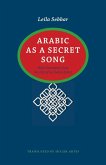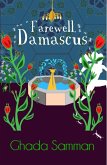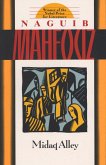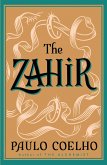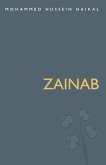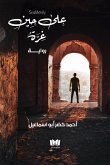THE AESTHETICS OF NARRATION AND RECEPTION IN LITERARY DISCOURSE STUDIES IN ARABIC LITERATURE The book presents the aesthetic of narrative employed by literary discourse through the literary works of some Arab writers renowned in the Arab World and at international levels, as well as some Palestinian writers in Israel, through literary models dealing with reality in the areas of: poetry, short story, and novel, and through a critical view trying to elucidate the intellectual and literary value of those literary models. The book also examines the various aesthetic values that have been employed and integrated into the literary text, comprising vocabulary, definition, artistic image, and intertextuality, etc. In the field of Palestinian poetry inside Israel, we mention, for example: Fahed Abu Khadra, Rushdie Almadi, Farouk Mawasi, Mofleh Tabo'ni, Muneer Tuma, Suad Qaraman, Wafa Ayashi, Ettaf Sougayar, and others. In the field of short story and novel, we mention from the Arab world: Najib Mahfouz, Youssef Idris, and Tayeb Salih. From the Palestinian writers inside Israel, we mention: Muhammad Nafaa', Muhammad Ali Taha, Zaki Darwish, Naji Dahir, Nabil Audi, and others. Needless to emphasize that our choice of those writers was not based arbitrarily on the fact that some of them had benefited from the opportunity of critical writing and publishing, particularly the Egyptian writers Najib Mahfouz, winner of the Nobel Prize for literature in 1988, and Youssef Idris. On the contrary, most of the Palestinian writers inside Israel did not get the attention and care they deserved from the critics and publishers. Also, we hope that the book will fill an existing vacuum in Arab literary studies, especially in English. The significance of this study is that it provides the opportunity, perhaps for the first time, to expose to the reader and learner, as well as to everyone interested in Arabic literature--Arabs as well as foreigners--the essence of the Palestinian literary movement, specifically inside Israel, through special models of the product of some of these creators which were produced under the shadow of social, cultural, and political conditions of the most difficult kind. Also, the study presents critical models that can constitute a qualitative addition to the Palestinian literary works inside Israel, as well as to the literary works in the Arab world. It was necessary to monitor those literary activities, not only in the Arabic language, but also in a universal foreign language. This may require opening windows towards others in order to achieve the greatest possible acculturation and the dialogue of civilizations in all fields of life and knowledge. This can give the Palestinian literary movement inside Israel a golden opportunity to advance and spread on a larger scale--and therein we will find the meaning of human happiness.
Dieser Download kann aus rechtlichen Gründen nur mit Rechnungsadresse in A, B, BG, CY, CZ, D, DK, EW, E, FIN, F, GR, HR, H, IRL, I, LT, L, LR, M, NL, PL, P, R, S, SLO, SK ausgeliefert werden.



